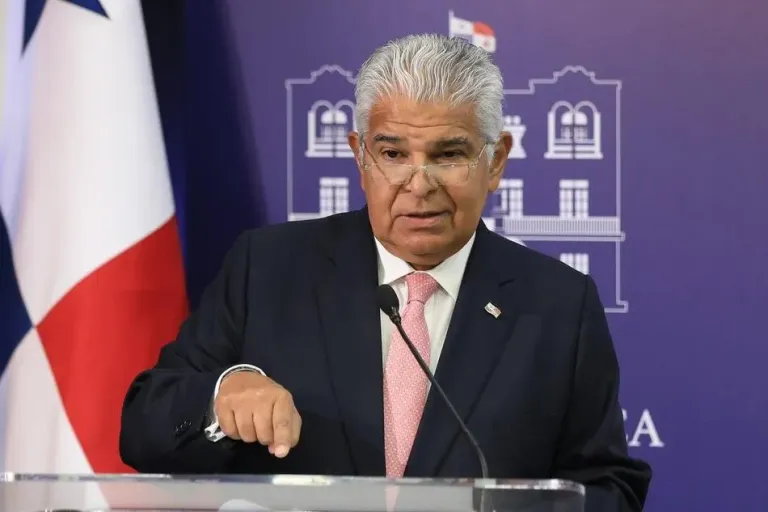In a decisive move that underscores his administration’s priorities, Panama’s President José Raúl Mulino has issued a stark warning regarding the ongoing debate over teachers’ strike legislation. The president’s firm position on the teachers’ strike and his broader policy announcements signal a focused approach to governance, emphasizing constitutional integrity, economic stability, and educational reform. This article delves into the key statements from President Mulino’s recent address, analyzing their implications for the nation’s future and its citizens.
A Constitutional Veto on the Horizon: The Teachers’ Strike Debate
President Mulino directly confronted a legislative proposal that has sparked significant controversy. The initiative, put forward by Representative Jairo Salazar, aims to grant educators the right to be absent for up to 60 days without facing salary deductions. In a press conference, Mulino left no room for ambiguity, stating he would veto “any law that he considers unconstitutional” concerning this matter.
His stance is rooted in a fundamental belief about how to improve the country’s educational system. “Education is not solved with paid strikes; it is solved by working, modernizing, and updating educational processes,” the president declared. This perspective highlights a commitment to systemic reform over what he perceives as measures that disrupt the academic calendar and hinder student progress.
What Does This Mean for Panama’s Education System?
The debate over teachers’ rights versus educational continuity is not unique to panama. However, President Mulino’s unwavering position brings it to the forefront of national policy. By prioritizing the “normal development of the education system,” the administration is signaling a shift towards holding the academic calendar as sacrosanct. This approach aims to minimize disruptions for students, a critical factor in improving educational outcomes. According to a World Bank study, instructional time is a key driver of student learning, and excessive school closures can have a lasting negative impact.
An Immovable Cabinet: Confidence Amidst Criticism
Despite facing criticism from deputies and public reports of low approval ratings for several ministers, President Mulino firmly ruled out any immediate cabinet changes. After 15 months in office, he expressed satisfaction with his team’s results, acknowledging that “not all ministries execute at the same pace.”
This decision to maintain a stable cabinet suggests a focus on long-term strategy and policy implementation. While he left the door open for future rotations if necessary, his current support for the cabinet indicates a belief in their collective ability to execute his government’s agenda without disruption.
Budget Adjustments and a $150 Million Boost for SMEs
On the economic front, the government has convened an extraordinary Cabinet meeting to evaluate recommendations on the 2026 General State Budget proposal. Deputy Minister of Economy Eida Gabriela Sáiz confirmed that the Ministry of Economy and Finance is working on necessary adjustments before the proposal’s first legislative debate, highlighting a meticulous approach to fiscal planning.
In a significant economic relief announcement, President Mulino confirmed the creation of a $150 million Guarantee Fund for Small and Medium-sized Enterprises (SMEs). This initiative, developed with the National Bank of Panama, the Inter-American Development Bank (IDB), and the MEF, is designed to provide crucial financial support.
- Loan Guarantees: The fund will guarantee up to 50% of loans, with individual loan ceilings of $600,000.
- Economic Impact: This program has the potential to grow, unlocking up to $900 million in financing for the SME sector.
- Government Support: “We want entrepreneurs to know that the State is on their side,” Mulino stated, emphasizing the administration’s commitment to fostering business growth.
SMEs are often described as the backbone of an economy. Data from the World Bank shows that formal SMEs contribute up to 40% of national income (GDP) in emerging economies. This fund represents a direct investment in job creation and economic diversification.
Removing Panama from International Lists: A Technical Challenge
President Mulino also addressed the government’s ongoing efforts to remove Panama from two critical international lists: the European Union’s list of non-cooperative jurisdictions for tax purposes and the list of countries flagged for illegal, unreported, and unregulated (IUU) fishing.
The EU Tax List and Forthcoming Reforms
The government acknowledges that Panama’s removal from the EU list is a complex, technical process. Vice Foreign Minister Carlos Hoyos explained that it requires comprehensive tax reforms, which are slated to be presented to the National Assembly before February 2026. The goal is to modernize the tax system while preserving the territorial tax model, a balancing act that will be closely watched by international investors and regulatory bodies. You can learn more about international tax cooperation standards on the EU’s official list page.
Strengthening Controls Against Illegal Fishing
Regarding the “yellow card” warning for illegal fishing, the government reports that controls on vessels have been significantly strengthened. This step is described as “vital for national exports,” as being on an IUU list can lead to trade sanctions and damage the reputation of a country’s seafood industry, affecting both export revenue and local livelihoods.
Conclusion: A Government Defining Its Path
President José Raúl Mulino’s recent announcements paint a picture of an administration willing to take firm, and at times controversial, stances. From his unequivocal threat to veto teachers’ strike legislation to his confidence in his cabinet and his dual focus on economic stimulus and international compliance, the president is clearly charting a specific course for his government. The coming months will be critical in determining how these policies impact the daily lives of Panamanians and the long-term trajectory of the nation’s education system and economy.



